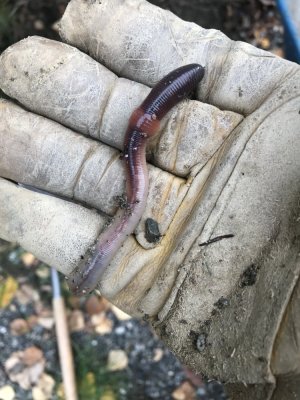Rhodie Ranch
Garden Master
- Joined
- Nov 19, 2009
- Messages
- 3,765
- Reaction score
- 6,645
- Points
- 333
- Location
- Southern Washington State, 8b
Where we've moved, we were told to spray a particular brand of broad leaf killer on our pasture to discourage moles. Sure enough, the former owner musta sprayed cus there are no moles out there. Prob no earthworms either, which is the primary diet of my moles here. Lots of moles up around the house and in the beds.





 Then, right after Christmas last year, I became quite ill with covid... today, I get around using a walker and crutches. I work in the garden sitting on a steel folding chair so that I can reach small weeds that dare to sprout. I haven't seen a " lawn python " for several months, but the moles are still here and tunneling trough the ferns and azalias,making them wilt, then die. So, the short answer to your question is now - no.
Then, right after Christmas last year, I became quite ill with covid... today, I get around using a walker and crutches. I work in the garden sitting on a steel folding chair so that I can reach small weeds that dare to sprout. I haven't seen a " lawn python " for several months, but the moles are still here and tunneling trough the ferns and azalias,making them wilt, then die. So, the short answer to your question is now - no.  I still would like to continue to post our good and bad gardening experiences so that everyone can benefit from them.
I still would like to continue to post our good and bad gardening experiences so that everyone can benefit from them.